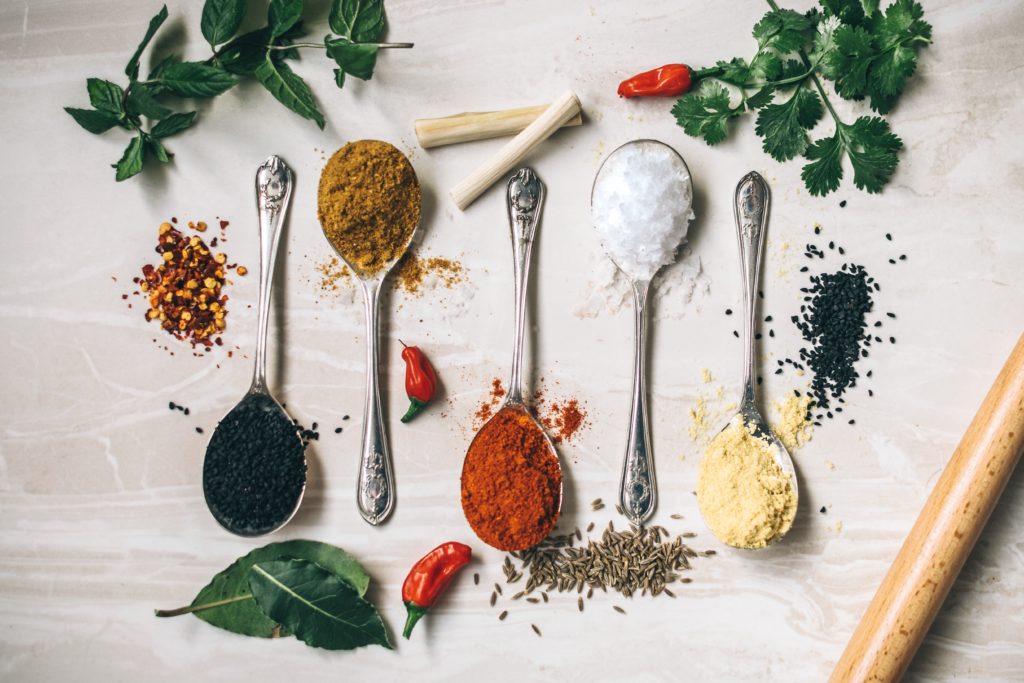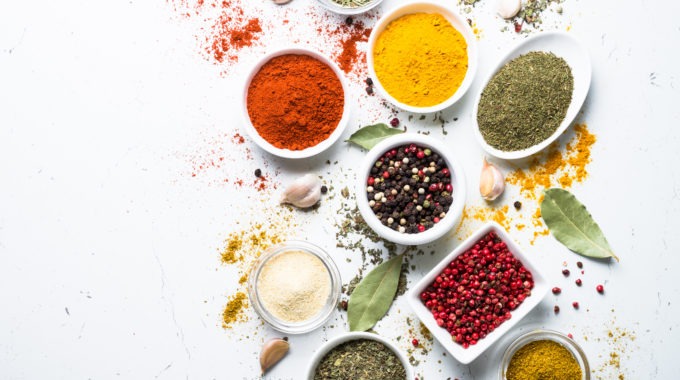Spice up your life… and your health
Adding spice to your meals will certainly make them taste darn good. Now new research from Penn State University in the US has revealed it could boost its health benefits, too.
Researchers found that when study participants ate a meal high in fat and carbohydrates that had six grams of a spice blend added to it, they had lower inflammation markers compared to when they ate a meal with fewer or no spices.
“If spices are palatable to you, they might be a way to make a high-fat or high-carb meal more healthful,” says researcher Connie Rogers. “We can’t say from this study if it was one spice in particular. However, this specific blend seemed to be beneficial.”
The researchers used a blend of basil, bay leaf, black pepper, cinnamon, coriander, cumin, ginger, oregano, parsley, red pepper, rosemary, thyme and turmeric for the study. Just in case you want to whip it up for yourself at home.

Blends with benefits
According to Rogers, previous research has linked a variety of different spices, like ginger and turmeric, with anti-inflammatory properties. Chronic inflammation has previously been associated with poor health outcomes like cancer, cardiovascular disease and obesity.
Research has also found that inflammation can spike after someone eats a meal high in fat or sugar. While it’s not clear whether these short bursts can cause chronic inflammation, Rogers says it’s suspected they play a role. Especially in people who are overweight.
“Ultimately, the gold standard would be to get people eating better, to lose weight and exercise,” she says. “But those changes are difficult and take time. So, in the interim, we wanted to explore whether a combination of spices could have a positive effect.”
In further spice developments, another study found that six grams of spice resulted in a smaller post-meal reduction of “flow-mediated dilation”. This is a measure of blood vessel flexibility and a marker of blood vessel health.

New hope for Alzheimer’s
Here in Australia, researchers from the University of South Australia have found a way to deliver curcumin into human cells via tiny nanoparticles.
Curcumin is the active compound of turmeric. There are many potential health benefits to curcumin. However, it’s not easy for the human body to absorb. This has made it frustrating for researchers seeking proof that the compound can successfully treat disease. It’s believed it may treat cancer, heart disease, Alzheimer’s and other chronic conditions.
This new method changes curcumin’s behaviour to increase its oral bioavailability by 117 percent. Researchers say that it not only prevents cognitive deterioration but also reverses damage. This finding paves the way for clinical development trials for Alzheimer’s.
“Curcumin suppresses oxidative stress and inflammation,” says study co-author Professor Xin-Fu Zhou. “Both are key factors for Alzheimer’s. It also helps remove amyloid plaques; small fragments of protein that clump together in the brains of Alzheimer’s patients.”
If that’s not an excuse for a nice bowl of curry, we don’t know what is.









